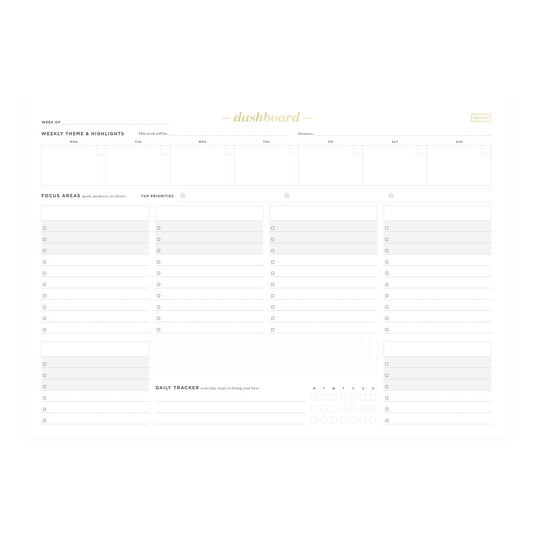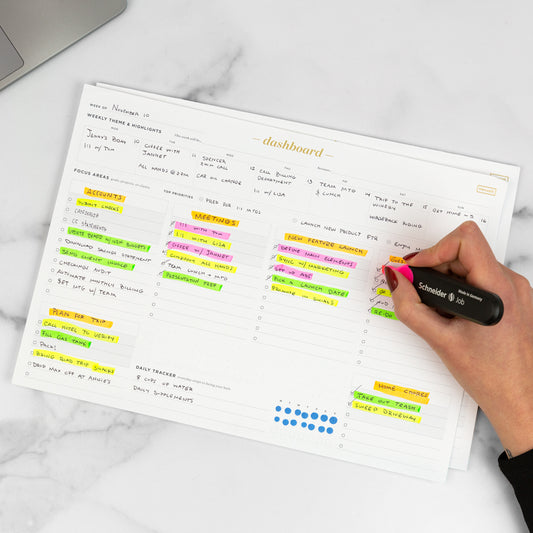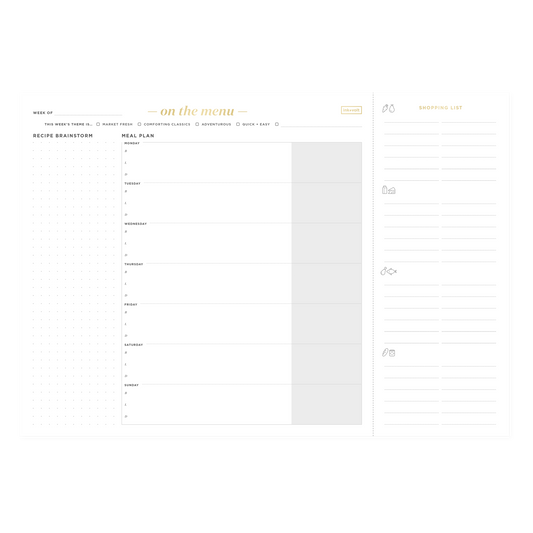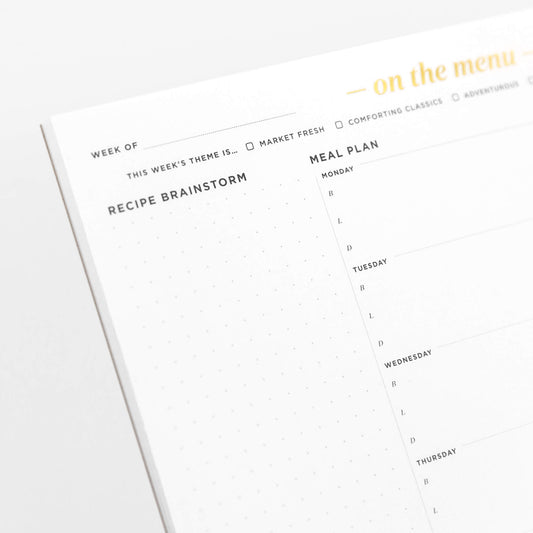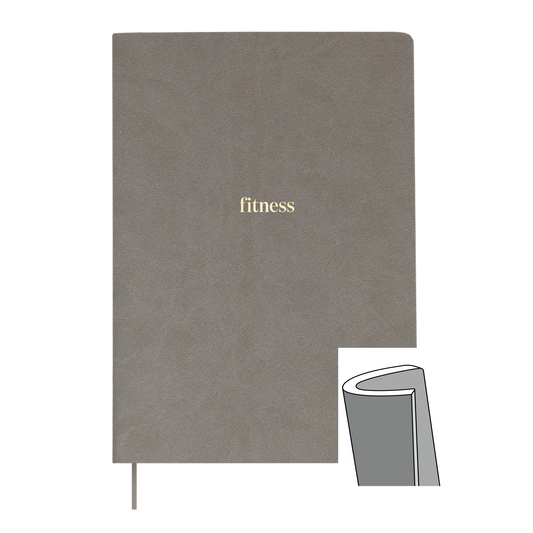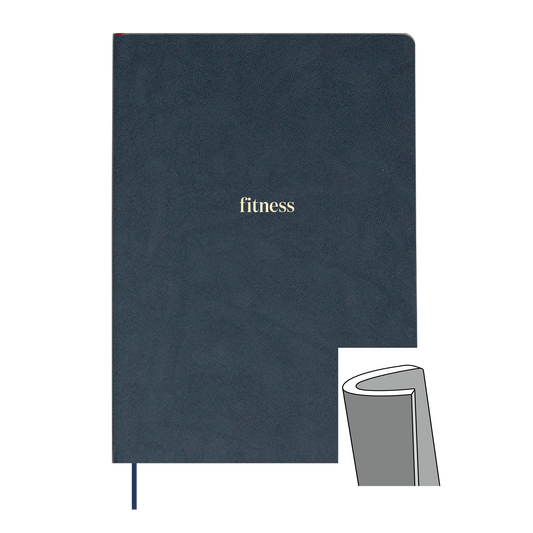Are you looking to be more organized, focused, and productive?
Then you’ll benefit from weekly planning and reflection.
Setting aside time to reflect on your past week and plan for the upcoming one is crucial to our success.
Why does weekly planning and reflection work?
Planning helps you live your life with more awareness and purpose. Instead of feeling like you’re running on autopilot or serving someone else’s priorities, you’re carving out your own path.
A weekly plan helps you put your goals front and center. You don’t always have to stick to your plan, but having some idea of what you would like to do and where you would like to end up, will give you a clear sense of direction.
At the same time, in order to figure out where we want to go, we need to be able to see how we’re doing so far.
Weekly reflection gives us an opportunity to examine our experiences and learn from them. We gain a better understanding of how we operate and think. A regular reflection practice lets us know what’s working, what’s not working well, and what we’d like to see more of in our life.
Moreover, a reflection practice can help you plan your days more effectively.
For example, let’s say you’re always signing up for networking events. But they take up a lot of your time, you don’t really meet many people, and you don’t really enjoy them. You keep adding them to your calendar anyway because you’ve been told that networking is good for your career.
But with a regular reflection practice, maybe you’d notice that connecting with someone on social media was just as effective, if not more than attending a networking event. With this knowledge in hand, you can start planning your week more strategically, saving you time and energy.
This is a small example of how a reflection exercise can help you plan better. Below we share tips and strategies on how to do weekly planning and reflection.
Tools for weekly planning and reflection
- Your favorite notebook or planner
- Calendar
- Pens and markers
- Nice-to-have: washi tape for tracking your progress
When to conduct weekly planning and reflection
Many people find it helpful to do a weekly plan and reflection on a Friday or Sunday. This way, your week is still fresh in your mind, and you can reflect on it more clearly.
Doing this exercise at the end of the week is also a great way to combat the Sunday Scaries. You’ll feel confident and assured knowing you have a head start on the week ahead.
So at the end of the week, reserve 15-20 minutes and find a quiet space to sit down, reflect, and plan.
How to reflect on your week
Before you start planning for your week, it’s helpful to reflect on the previous one.
Here are examples of topics that you can reflect on.
Career reflection. Do you feel stuck in your career? Are you looking to get a promotion or make a career pivot? Weekly reflection can help you assess what’s working and what’s not in order to make progress in your career.
Personal growth reflection. Maybe you’re looking to learn a new language, or make new friends, or become more confident. Weekly reflection is a great way to boost your personal development goals.
Self-care reflection. Oftentimes, we wait until we’re really stressed and overwhelmed to take care of ourselves. But it’s vital for our health and well-being to make self-care a regular practice. At the end of the week, identify your stressors along with the things, activities, and people that made you feel good. By understanding what causes us stress and what brings us relief, we’ll be better able to meet our needs.
Whether you’re reflecting on your career, personal development, or well-being, below are some questions you’ll want to ask yourself.
Reflect on the challenges. Take note of days that seemed stressful and challenging. Knowing what you know now, how would you handle a similar situation in the future? Is there anything you would do differently? Were there any positive lessons to take away from it?
Take note of what went well. Maybe you spoke up at a meeting. Or successfully landed a new client. What do you think attributed to your success? Can you replicate this in the future? Oftentimes, we tend to dwell on the mistakes we made. But it’s so important to identify the things we did well, so that we know to keep doing them.
Celebrate your wins. Now that you’ve noted what went well, use this moment to celebrate your big and small wins. Place a gold star in your planner or celebrate with a small treat. This will energize you as you enter the upcoming week.
These reflection exercises are not set in stone. You can customize your weekly reflection to suit your goals and needs.
How to do weekly planning
Now that you’ve gained some insight into your previous week, here are tips to help you better plan for the week ahead.
Identify your priorities. To ensure that your week is a successful one, it helps to identify your biggest priorities. What are 2-3 things you’d like to do this week that will make you feel fulfilled and happy? Your priorities can be related to your goals, your personal development, or career. Maybe it’s setting aside time to write in your journal or attend a cultural event or have a night out with friends. Think of priorities as a bullseye for your week. They help you figure out where to direct your efforts.
Identify your must-dos. What are the things that you must accomplish this week? These are your deadlines, appointments, and events. By planning for your essential tasks, you won’t be caught off-guard when they arise. You’ll be able to portion out your time and energy to work on them.
Create a checklist. Get everything organized with a to-do list. This list should capture your priorities, must-dos, and anything else you’d like to tackle this week.
Add it to your calendar. We can’t rely on our memory alone to get things done. We need tools to help us manage our time and complete our work. An essential step to weekly planning is to add deadlines, tasks, and other important activities to your planner or calendar. This will help you honor your commitments.

